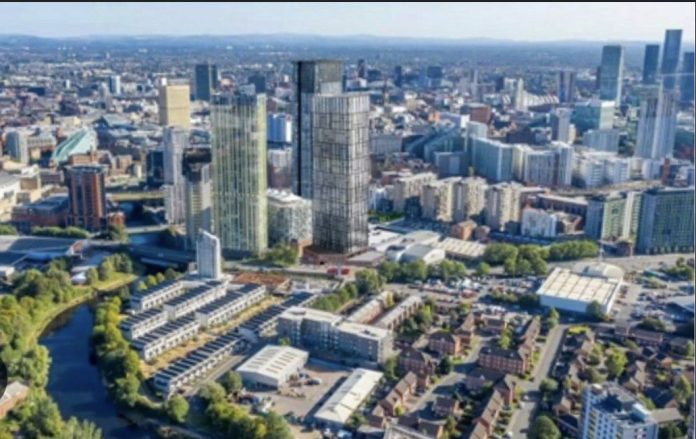Hundreds of new roles will be coming to the region after the Department for Science, Innovation and Technology (DSIT) announced today that it will establish its second headquarters in Salford
Greater Manchester is renowned for its industrial legacy and pioneering spirit, with a storied history intertwined with STEM (Science, Technology, Engineering, and Mathematics).
The decision to open a second headquarters will position DSIT at the heart of a community that has played a pivotal role in shaping scientific and technological advancements in the UK, including one of the most significant breakthroughs in nuclear physics with the first artificial splitting of the atomic nucleus, and the discovery of isolated graphene which sparked numerous innovations in materials science and technology.
DSIT and Building Digital UK currently has nearly 200 staff based in Greater Manchester – a number we are committed to doubling over the coming years.
The announcement forms part of the government’s Places for Growth programme, a civil service wide commitment to grow the number of roles outside of London and the south-east to 22,000 by 2027.
Greater Manchester is one of DSIT’s active growth locations, along with Birmingham, Bristol (from Winter 2024), Cardiff, Darlington and Edinburgh, the department remains committed to grow and build communities across all of these locations over this period.
Over the years, Manchester has evolved into a modern innovation hub, housing cutting-edge research institutions, world-class universities, and thriving technology clusters. The region’s commitment to fostering STEM disciplines aligns with the government’s mission to cement the UK’s place as a science and technology superpower.
Manchester boasts a legacy of scientific pioneers, including Ernest Rutherford, who conducted groundbreaking work in nuclear physics, and Alan Turing, the father of modern computer science.
Secretary of State for Science, Innovation and Technology Michelle Donelan said:
Greater Manchester is steeped in a legacy of technological progress, rooted in the Industrial Revolution and long home to scientific pioneers like Alan Turing and Ernest Rutherford.
By establishing our second headquarters here, we not only tap into a pool of exceptional talent but also ensure that policymakers responsible for the growth of science and technology live and work alongside a dynamic community of sci-tech leaders.
It is important that the people we serve are placed at the heart of government and that policymakers represent the diversity of our communities. That is why the Places for Growth commitment is so vital in helping to ensure that we can grow our economy and deliver on the Prime Minister’s priorities.







